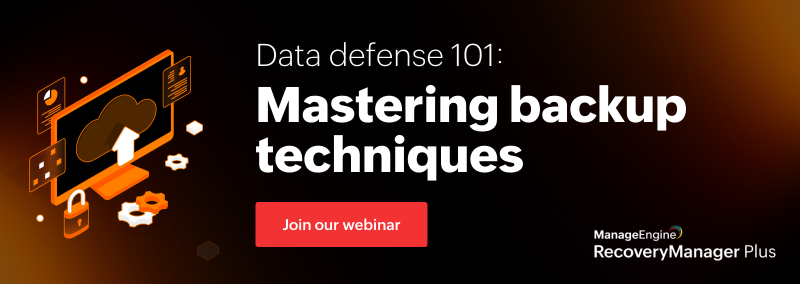Identity Management Day occurs on the second Tuesday of April, April 9 this year. It was established by the Identity Defined Security Alliance in 2021...

Uncovering identity threats: Lessons learned from a real-life data breach
Every IT admin, regardless of the company size or employee count, shares a common fear: data breaches. The horror of discovering their organization’s data exposed...

USB review, Part 2: How to manage USB devices
In this two-part series, the first blog demonstrates how USB devices can be conduits of threats. Read that blog to learn more about USB security threats. In this...

Backup basics: Ensuring data security in an uncertain world
In today’s digital age, where data is the lifeblood of businesses and individuals alike, the importance of backup and data protection cannot be overstated. Whether...

Tech tales and endpoint hacks: Dive deep with Endpoint Pulse
Remember the captivating stories you heard growing up? Though we may have graduated to books and then podcasts, the power of storytelling remains. There’s something...

Why regular access certification is your secret weapon against data breaches
In the ever-evolving realm of cybersecurity, where threats loom large and breaches are a constant concern, the practice of granting always-on or standing privileges to...

Why you should be concerned about the largest phishing attack on Azure so far, and what you can do about it
Azure customers are facing the biggest threat to their privileged accounts. A cybersecurity firm has identified the spread of a new phishing campaign aimed at...

Redefining AD risk assessment with ADManager Plus
Today, the process of digitization has become synonymous with progress and innovation. As organizations embrace digital transformation post-pandemic, the importance of securing your digital assets...
How to effectively streamline AD actions with automation
Organizations worldwide use Active Directory (AD) to manage users, devices and data. The world moves at a fast pace, and it demands that tasks be...

